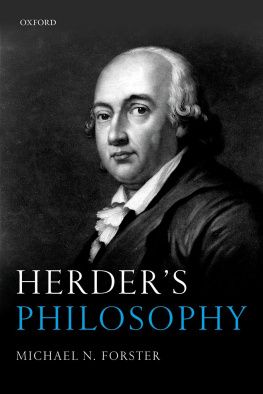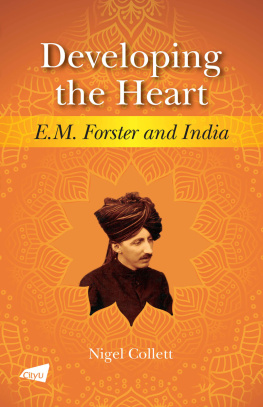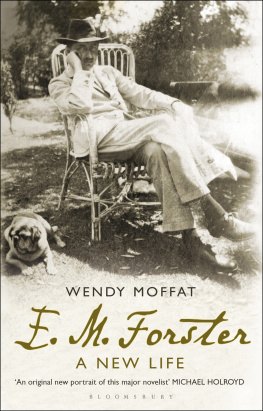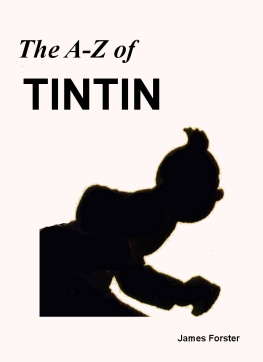Forster - Herders Philosophy
Here you can read online Forster - Herders Philosophy full text of the book (entire story) in english for free. Download pdf and epub, get meaning, cover and reviews about this ebook. year: 2018, publisher: Oxford Univ Press, genre: Religion. Description of the work, (preface) as well as reviews are available. Best literature library LitArk.com created for fans of good reading and offers a wide selection of genres:
Romance novel
Science fiction
Adventure
Detective
Science
History
Home and family
Prose
Art
Politics
Computer
Non-fiction
Religion
Business
Children
Humor
Choose a favorite category and find really read worthwhile books. Enjoy immersion in the world of imagination, feel the emotions of the characters or learn something new for yourself, make an fascinating discovery.
Herders Philosophy: summary, description and annotation
We offer to read an annotation, description, summary or preface (depends on what the author of the book "Herders Philosophy" wrote himself). If you haven't found the necessary information about the book — write in the comments, we will try to find it.
Herders Philosophy — read online for free the complete book (whole text) full work
Below is the text of the book, divided by pages. System saving the place of the last page read, allows you to conveniently read the book "Herders Philosophy" online for free, without having to search again every time where you left off. Put a bookmark, and you can go to the page where you finished reading at any time.
Font size:
Interval:
Bookmark:


Great Clarendon Street, Oxford, OX2 6DP, United Kingdom
Oxford University Press is a department of the University of Oxford. It furthers the Universitys objective of excellence in research, scholarship, and education by publishing worldwide. Oxford is a registered trade mark of Oxford University Press in the UK and in certain other countries
Michael N. Forster 2018
The moral rights of the author have been asserted
First Edition published in 2018
Impression: 1
All rights reserved. No part of this publication may be reproduced, stored in a retrieval system, or transmitted, in any form or by any means, without the prior permission in writing of Oxford University Press, or as expressly permitted by law, by licence or under terms agreed with the appropriate reprographics rights organization. Enquiries concerning reproduction outside the scope of the above should be sent to the Rights Department, Oxford University Press, at the address above
You must not circulate this work in any other form and you must impose this same condition on any acquirer
Published in the United States of America by Oxford University Press 198 Madison Avenue, New York, NY 10016, United States of America
British Library Cataloguing in Publication Data
Data available
Library of Congress Control Number: 2018934543
ISBN 9780199588367
ebook ISBN 9780192563224
Printed and bound by CPI Group (UK) Ltd, Croydon, CR0 4YY
For Paola
This book attempts to give an overview of Herders philosophy. It is written out of a conviction that his philosophy is of great value, that it has had enormous influence, and that neither of these facts has yet been properly understood. It is also written out of a painful awareness that the very richness of Herders ideas and the very extent of their influence make it well nigh impossible for a book like this one to do more than scratch the surface. Still, it will try.
The first half of the book (the Introduction and the chapters on philosophy of language, hermeneutics, translation theory, and the birth of linguistics and anthropology) is largely a more concise and user-friendly reworking of material from two books that I published previously with Oxford University Press: After Herder: Philosophy of Language in the German Tradition (2010) and German Philosophy of Language: From Schlegel to Hegel and Beyond (2011). The second half of the book (the chapters on philosophy of mind, aesthetics, moral philosophy, philosophy of history, political philosophy, philosophy of religion, and intellectual influence) mostly consists of new material.
I have incurred many deep intellectual debts in connection with this project that I would like to acknowledge here. Some of these reach back to my undergraduate education at Oxford, where I learned much about German philosophy from the late Patrick Gardiner, Peter Hacker, Alan Ryan, the late Peter Strawson, Charles Taylor, and Ralph Walker. Other debts are to people from whom I learned as a graduate student at Princeton University: especially, the late Michael Frede, Raymond Geuss, Saul Kripke, and the late Richard Rorty. Yet other debts were incurred during twenty-eight years of full-time teaching at the University of Chicago. Some of these debts are to former colleagues thereincluding the late Arthur Adkins, Dan Brudney, the late Ted Cohen, Arnold Davidson, Dan Garber, Charles Larmore, Jonathan Lear, Brian Leiter, the late Leonard Linsky, Yitzhak Melamed, the late Ian Mueller, Martha Nussbaum, Bob Richards, Howard Stein, Lina Steiner, Josef Stern, the late George Stocking, and Bill Tait. Others are to former studentsincluding Stephen Engstrom, Susan Hahn, Jim Kreines, Sheela Kumar, Alison Laywine, Alyssa Luboff, Stephen Menn, Nathana OBrien, Gregg Osborne, Erich Reck, Tim Rosenkoetter, David Sussman, and Rachel Zuckert. I also owe a great debt of gratitude to colleagues in Germany with whom I have worked closely over the years in Heidelberg, Bonn, and Jena. These include Hans-Friedrich Fulda, Markus Gabriel, Wolfram Hogrebe, Guido Kreis, Rainer Schaefer, Franois Thomas, Klaus Vieweg, and Wolfgang Welsch. Other people who have contributed to the development of this project in various ways and whom I would like to thank include: Karl Ameriks, Andreas Arndt, Jeffrey Barash, Fred Beiser, Christian Berner, Anne Birien, Paul Boghossian, Rich Booher, Bob Brandom, Horst Bredekamp, the late Rdiger Bubner, Stefanie Buchenau, Nigel DeSouza, Manuel Dries, Thomas Erikson, Eckhart Frster, Kristin Gjesdal, Hanjo Glock, Marion Heinz, Rolf-Peter Horstmann, John Hyman, Michael Inwood, Mark Johnston, Vasso Kindi, John McDowell, Steffen Mehlich, Ernest Menze, Dalia Nassar, Robert Norton, Michael Rosen, Fred Rush, Richard Schacht, Hans Sluga, Pirmin Stekeler-Weithofer, Jrgen Trabant, Stelios Virvidakis, Anik Waldow, Michael Williams, Claudia Wirsing, Allen Wood, and John Zammito.
Among institutions, I owe large debts of thanks to the University of Chicago where I have taught for over thirty years (formerly full-time, now as a visitor); Bonn University, where I have worked full-time since 2013; and the Alexander von Humboldt Stiftung, whose generous award of an Alexander von Humboldt Professorship to me in 2013 has helped me to complete this project.
In addition, colleagues at the following institutions contributed to this project by inviting me to present parts of it as talks and giving me the benefit of their feedback: the Academy of the Sciences in Moscow, the APA Central Division, the APA Eastern Division, the Aristotle University in Salonica, the University of Athens, the Berlin-Brandenburg Academy of the Sciences, the Bildakt-Kolleg of the Humboldt University, Bonn University, the University of Brussels, the University of California at Berkeley, Cambridge University, The University of Chicago, Columbia University, the University of Crete, Drew University, Eikones in Basel, the University of Georgia, Halle University, Harvard University, the Humanities Institute of Osaka, the University of Illinois at Urbana-Champaign, the Institut franais in Bonn, the Internationale Hegel Gesellschaft, the Internationale Hegel Vereinigung, the International Society for Nietzsche Studies, Istanbul University, James Madison University, Jena University, Johns Hopkins University, the University of Leuven, the Lomonossov University in Moscow, the University of London, McGill University, the University of Michigan at Ann Arbor, New York University, the Nietzsche Gesellschaft, the University of Notre Dame, Oslo University, Oxford University, the Paris Center of the University of Chicago, the University of Paris at Nanterre, the University of Patras, the Philosophy Department of the Humboldt University, the University of Poitiers, Princeton University, Renmin University in Beijing, Sydney University, Temple University, Toulouse University, Warsaw University, the University of Washington in Seattle, the University of Western Ontario, and the Wissenschaftskolleg in Berlin.
I also owe a debt of thanks to the many presses and journals that have published work of mine that eventually developed into this book. They are too numerous to list here individually, but their names can be found in the notes and bibliography of this volume and in my previous publications on Herder.
I would also like to thank Oxford University Press and especially its Philosophy editor Peter Momtchiloff for suggesting this project to me in the first place and for helping me to bring it to completion. Peters encouragement and advice throughout the process were invaluable.
Font size:
Interval:
Bookmark:
Similar books «Herders Philosophy»
Look at similar books to Herders Philosophy. We have selected literature similar in name and meaning in the hope of providing readers with more options to find new, interesting, not yet read works.
Discussion, reviews of the book Herders Philosophy and just readers' own opinions. Leave your comments, write what you think about the work, its meaning or the main characters. Specify what exactly you liked and what you didn't like, and why you think so.
















